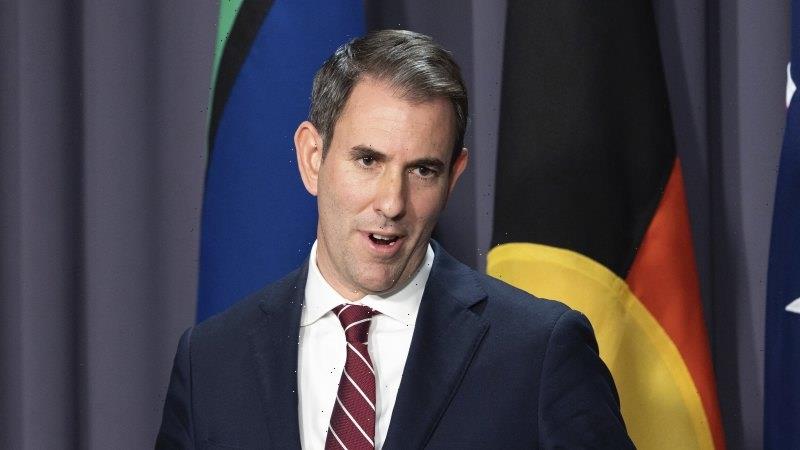An election campaign in which Labor used inflation and cost of living pressures as cudgels to whack the Coalition has quickly turned into a political headache for the new government.
The March quarter national accounts confirmed the country has an inflation problem and it is broader and deeper than Treasury, the Reserve Bank and even Jim Chalmers thought before May 21.
While most attention was directed at the headline growth rate of 0.8 per cent, delivering the country an annual rate of 3 per cent, the devil was really in the detail.
For economic nerds, the problem was the GDP implicit price deflator. Unlike the consumer price index, which measures price changes of a fixed basket of consumer goods, the deflator attempts to measure the change in prices for all goods and services produced across the entire economy.
In the March quarter, this rose by 2.9 per cent, its fastest quarterly increase since the first three months of 1988. At an annual rate, it reached 6.7 per cent.
Even when you narrow this measure of inflation down to the domestic side of the economy, the 1.4 per cent increase in the March quarter was the highest since the GST was introduced in 2000.
Chalmers used his first national accounts press conference to paint all of the figures as bleak as a Canberra winter. In reality, they were much closer to early autumn in the nation’s capital.
Parliament House in Canberra with snow on the mountains behind on Wednesday morning.Credit:Alex Ellinghausen
But he was closer to the truth when talking specifically about the economy’s inflation problems.
“Skyrocketing inflation is a big challenge. Falling real wages is a big challenge. The impact of interest rate rises, that the Reserve Bank governor has flagged, a big challenge,” he said.
It’s not just a local problem.
US Treasury Secretary Janet Yellen, a former head of America’s central bank, overnight conceded she had got it wrong when last year when she argued the country’s inflation pressures were largely temporary.
“I think I was wrong then about the path that inflation would take,” she told CNN.
“There have been unanticipated and large shocks to the economy that have boosted energy and food prices and supply bottlenecks that have affected our economy badly that I didn’t – at the time – fully understand, but we recognise that now.”
Joe Biden and Yellen are fighting their own political problems caused by high inflation with interest rates expected to again be increased later this month.
Chalmers’ issues are more immediate. The Reserve Bank, pushed into an election campaign rate rise, will be lifting rates next Tuesday. The question is whether it will be a quarter percentage point rise or 0.4 percentage points.
On a new mortgage of $800,000, a cash rate at 0.75 per cent translates into a $320 a month increase in repayments in a little over 9 weeks.
That is real cost of living pressure, with more to come.
And it’s more than an economic issue. It is quickly becoming a political one.
The Morning Edition newsletter is our guide to the day’s most important and interesting stories, analysis and insights. Sign up here.
Most Viewed in Politics
From our partners
Source: Read Full Article

